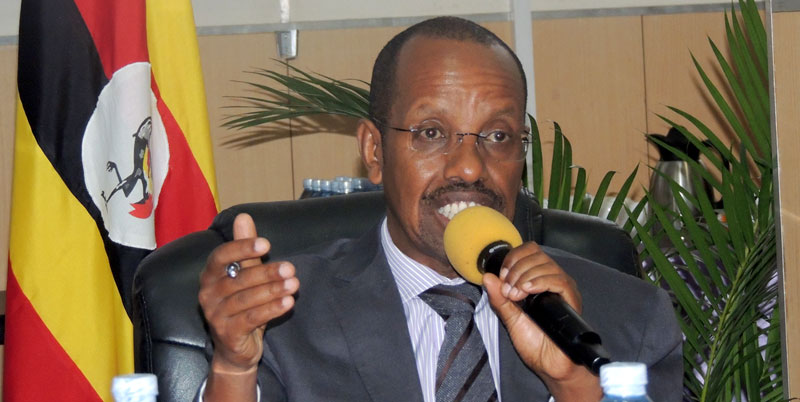Agriculture, social spending key to economic recovery says IMF
Uganda is set to record its worst economic performance in 30 years largely because of last year’s prolonged drought that severely hit the agriculture sector but also due to excessive investments in the infrastructure at the expense of other social sectors.
Some of these revelations arise from the latest economic assessment report by a team from the International Monetary Fund (IMF) and released this week.
The IMF team, lead by Axel Schimmelfennig told a media briefing held at the Finance Ministry Headquarters in Kampala that Uganda will record zero real GDP per capita this year.
According to MUBS economist Ramathan Ggoobi, Uganda’s poor performance didn’t just happen out of the blue but was rather a culmination of years of sluggish growth, that was characterised by very marginal growth and a number of quarters in which the economy contracted.
“We have recorded five quarters of negative growth in five years. We have never had such poor performance since 1987. We are even lucky to have escaped a full blown recession simply because in some years, we recorded some quarters of positive growth,” said Ggoobi.
And according to Uganda’s economists, this is the country’s worst performance since 1987. But the situation was unavoidable because of the prolonged drought that caused the agricultural sector to contract (negative growth), adversely affecting several other sectors that depend on it.
The situation has been compounded by serious revenue collection shortfalls by Uganda Revenue Authority(URA) in 2016/17 as well as significant reduction in commercial bank lending to the private sector. Bank of Uganda officials say that commercial bank lending at one point in recent months, hit zero (meaning that banks didn’t lend to businesses.) They noted however that credit has recovered to about 8% currently.
Ggoobi mentions other economic failure, to which the government has paid little attention. He cites piling up of inventories by business owners brought about by low aggregate demand over the past year.
Uganda’s poor economic performance, according to economists and private players, was also exacerbated by years of government heavy expenditure on infrastructure projects that adversely affected spending in the social sector like education and healthcare.
The fact that agriculture recorded negative growth during the entire financial year, means that the overwhelming majority of Ugandans who rely on the sector for survival, endured diminished fortunes, which also means that many sunk deeper into poverty.
Although the IMF team appears to approve the government’s proposed medium term emphasis on infrastructure spending, some economists have called for a rethink of the policy that emphasises greater support to the private sector, more social spending and greater investments into the agricultural sector.
IMF said: “Infrastructure and oil sector investment are envisaged to lead to a recovery of growth to 6-6.5 percent over the medium-term.” But the fund added: “Social spending can help make growth more inclusive.”
Dr. Fred Muhumuza, an economist with the Economic Policy Research Centre (EPRC) recently compared the government heavy investments in infrastructure as the expense of the private sector as feeding a malnourished person on a buffet.
“We should not rush to fill up the infrastructure deficit which has been built over the years because that will kill the other aspects of the micro economics. We should be concerned about how much money the government is putting into the economy but this should not be at the expense of the private sector that is supposed to actually use that infrastructure. Economic growth is an issue of the private sector, with government only a facilitator.”








